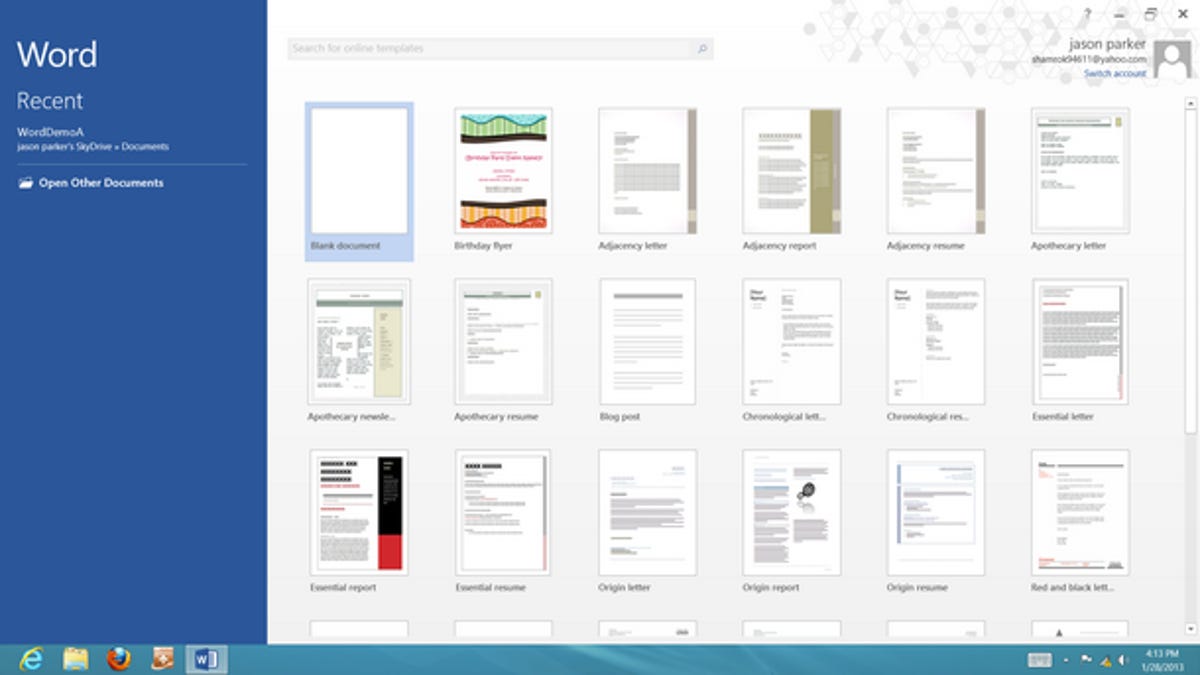Microsoft addresses confusion over Office 2013 licensing
The company's latest blog attempts to answer some lingering questions about Office 2013 licenses.

Can Office 2013 users transfer their license from one PC to another? Well, it depends.
Microsoft recently created some confusion and controversy when it revealed that Office 2013 would be restricted to one PC. People who need to install the software on another PC are out of luck, or so it seems. Ed Bott of CNET sister site ZDNet illuminated the licensing changes in the new suite.
You can't buy Office 2013 on DVD or other media. Instead, you have to purchase a key card, which allows you to download the software. But the real kicker is that Office 2013 is activated on the PC on which you install it. Your perpetual license is stuck to that one and only PC.
The new policy is a marked change from the full Office 2010 product, which was available on disc and could legally be transferred to another PC if you had to upgrade to a new computer.
To bring some clarity to the controversy, Microsoft tried to explain the licensing in a blog posted yesterday. The blog confirmed that your Office 2013 software is licensed to one computer for its entire life and cannot be transferred to another PC.
But what if your PC craps out? Then you may be okay.
"In the event that a customer buys the Office 2013 software and installs it on a PC that fails under warranty, the customer can contact support to receive an exemption to activate the Office 2013 software on the replacement PC," the blog explained.
Of course, that phrase "under warranty" poses yet another question. What happens if your PC is out of warranty and breaks down, and you lose everything. Would Microsoft refuse to help you reactivate Office 2013 on the replacement PC?
No, it seems your friendly Microsoft support rep may still lend a hand.
"That would be really unfortunate, and I'm sure our customer support team would be able to help people in that situation," a Microsoft representative told CNET. "Microsoft handles each customer support scenario on a case by case basis. We encourage customers who are faced with an Office 2013 software license issue to contact Microsoft support for further guidance."
Why the stricter licensing rules with the new version of Office?
Quite simply, Microsoft wants people to switch to the subscription-based Office 365.
Touting that product as the solution for users with multiple PCs, the blog states that Office 365 Home Premium can be activated and deactivated across as many as five different devices. Office 365 University, which is geared for college students, can be activated and deactivated on two devices. Those devices can include a PC, Mac, or tablet.
Since Office 365 requires an annual subscription, Microsoft potentially stands to make more money from it. Office Home & Student 2013 costs $139.99. Office Home & Business 2013 goes for $219.99. And Office Professional 2013 costs $399.99.
Office 365 is only $99, but that's $99 a year.
People who install Office 365, especially on multiple devices, are likely to continue that subscription rather than suddenly jump to Office 2013 midstream. Users are then essentially locked into that subscription unless they choose to give up Office entirely.
Office 365 also includes the full suite of applications, including Outlook, Access, and Publisher. It offers storage space on SkyDrive and 60 minutes worth of Skype calls each month. So it can be a tempting alternative to the traditional Office suite.
Will Office users bite? Those who want to stick with Office but are concerned about the new Office 2013 license restrictions might just decide they have little choice.
Update, February 21 at 11 a.m. PT: Adds response from Microsoft.

